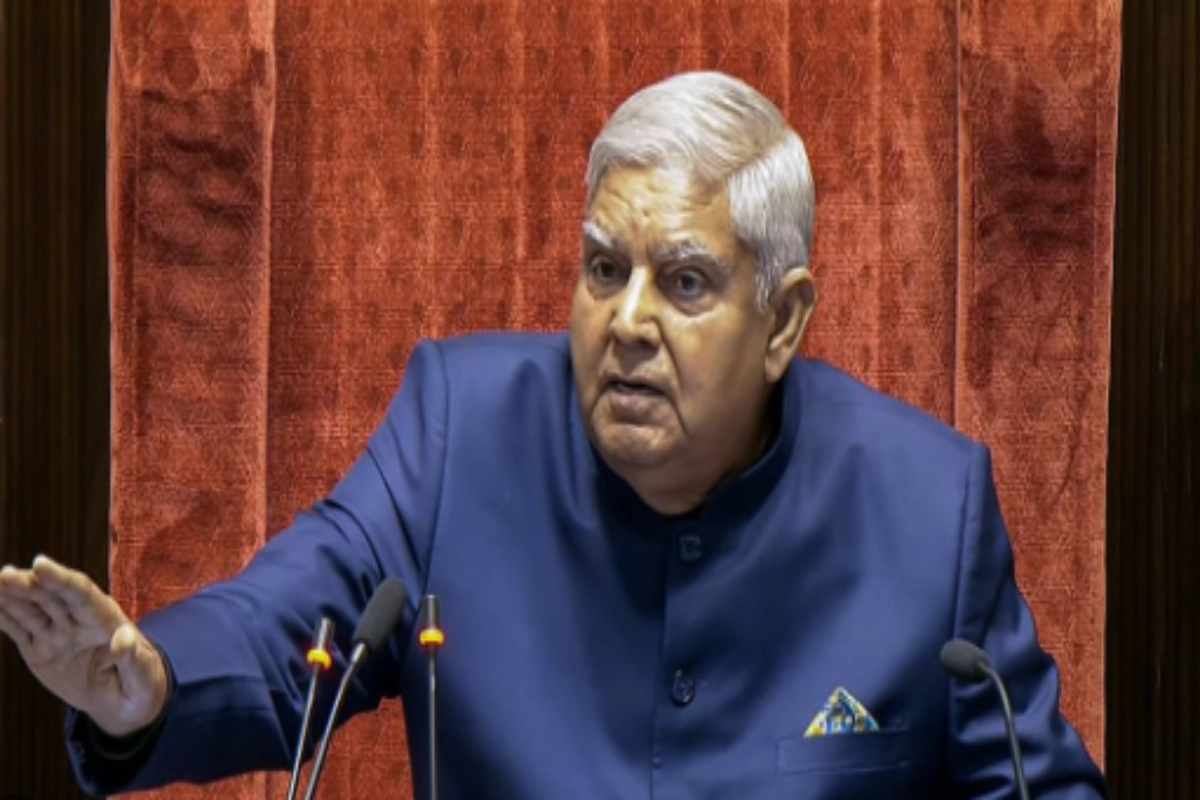Bangladesh Unrest: Vice President Jagdeep Dhankhar cautioned that there were “anti-national forces” which sought to draw disturbing comparisons between India and the recent political upheavals in neighboring Bangladesh while addressing a stern address at the platinum jubilee celebrations of the Rajasthan High Court in Jodhpur. The comments have come at a time when the political temperature in Bangladesh has spiced up amidst rampant unrest following the ousting of Prime Minister Sheikh Hasina.
A Critique of Unnamed Critics
Dhankhar’s comments were aimed at some unnamed people and were perceived as a retort to recent statements of Congress leaders Salman Khurshid and Mani Shankar Aiyar. Both leaders had drawn comparisons between the political situations in India and Bangladesh, to say that what happened in Bangladesh can also happen in India.
“Be on watch out!! Efforts by some to infuse a narrative that what happened in our neighbourhood is bound to happen in our Bharat, is deeply concerning,” Dhankhar said. He criticised those who, with all their experience and profiles, have been too quick to draw ominous inferences vis-a-vis India from happenings in its neighborhood without considering the unique contexts of these countries.
DON'T MISS
Stability in India at Risk?
Khurshid’s remarks had given an indication that despite the prevailing stability of the country, the disruptions that happened in Bangladesh can very well happen in India. Views expressed by Aiyar, a former diplomat and Union Minister, added to the controversy. The response of Dhankhar only underscores his belief that such comparisons are not only misplaced but are also potentially very harmful to national unity and stability.
He stressed that the Vice President has to put the national interest above everything else; it must always come first for every citizen and leader. “National interest cannot be calibrated. It is the supreme precedence, the only precedence, and we are committed to the nation being first, before anything else,” Dhankhar said firmly.
Hasina Resigns Amidst Violent Protests
The backdrop to Dhankhar’s remarks is the current political crisis in Bangladesh where Hasina, the ‘Iron Lady,’ was compelled to resign amidst fierce student-led protests and leave the country. An interim government headed by Nobel laureate Muhammad Yunus has since taken over with an avowed program to reestablish “law and order” after violent clashes between protesters and Hasina’s supporters claimed many lives.
Reflecting on the Emergency
He also seized the opportunity to look within India’s history, particularly during the Emergency period imposed by then-Prime Minister Indira Gandhi in June 1975. He branded that period as “the draconian darkest period” since the independence of the country, as he pointed out how even the judiciary, which normally has been a citadel for the protection of fundamental rights, was compromised under the “brazen dictatorial regime.”
Remarks of Dhankhar show that both on national and regional issues, what is required is a clear head, alert to the dangers of undue influence by the historical or contemporary crises in the neighboring countries over domestic discourse and policy.



